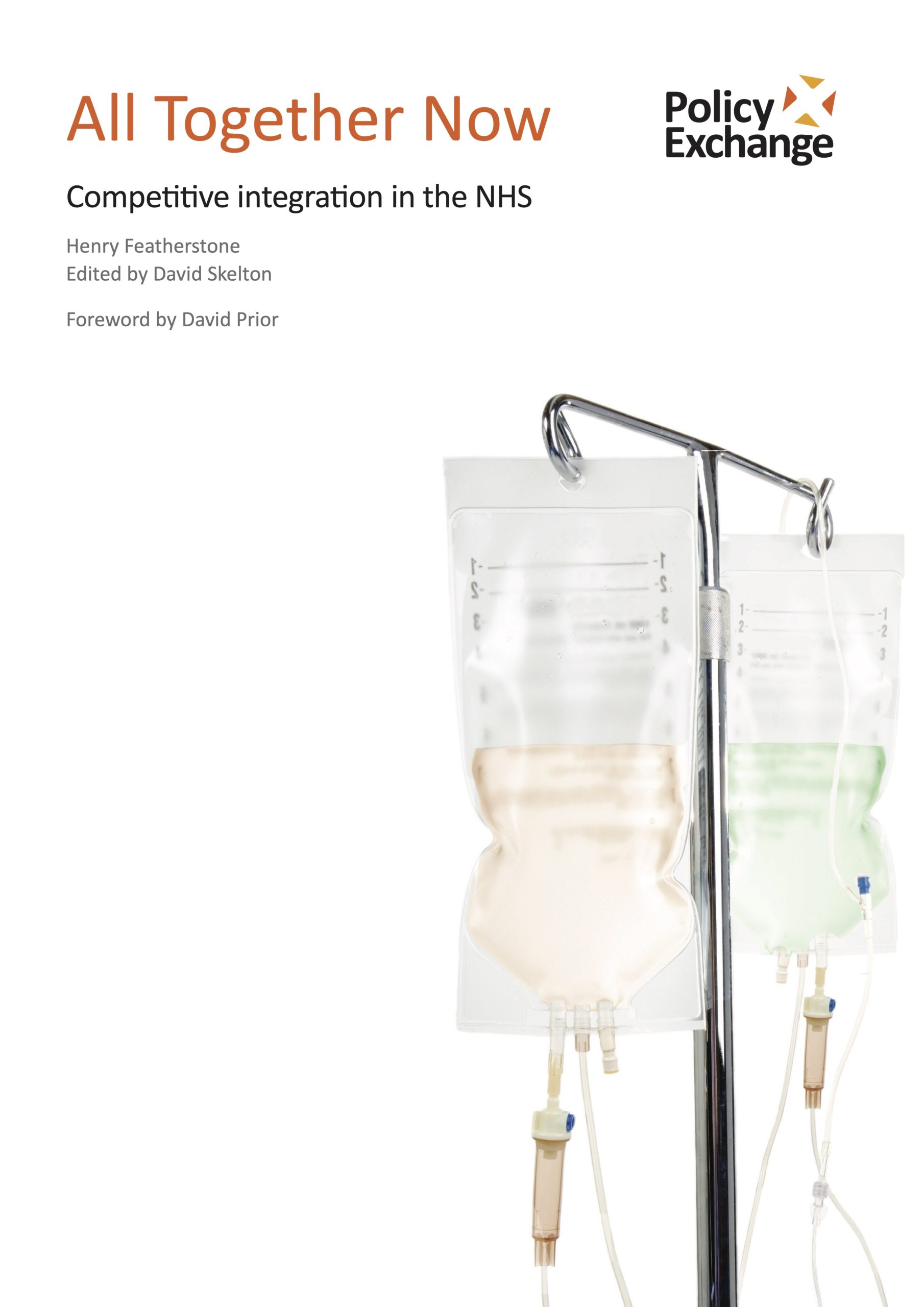
All Together Now: Competitive integration in the NHS
Unnecessary admissions to NHS hospitals have grown over the last 10 years, fuelled by pay incentives for doctors that fail to encourage GPs and consultants to work together in the best interests of the patient.
Hospital admissions have increased by 2.79 million since 2005, largely due to the fragmented nature of the NHS. The report says the way GPs and consultants are incentivised must be radically reformed with the primary focus being on reducing hospital admissions. GPs are currently being paid thousands of pounds on top of their basic salaries to carry out basic administrative tasks such as arranging blood tests and updating disease registers.
All Together Now: Competitive integration in the NHS, says that NHS funding arrangements encourage acute hospitals to admit patients to hospital to service high fixed costs for staff and property rather than trying to treat patients at a community level or in the home. It also finds that by international standards patients in England with chronic diseases are more likely to be admitted to hospital and stay much longer once admitted.
Over the past twenty years, successive governments have divided the NHS into ever smaller and more divided parts. This has led a multi tiered system of separate organisations, each setting their own legal identity, culture and bonus schemes. The lack of coordination between Primary Care Trusts; GP practices, and acute hospitals has led to unnecessary and costly admissions to hospital for patients with long term conditions such as diabetes and Alzheimer’s who should be treated at a community level or in the comfort of their own home.
The report finds a common theme from successful integrated care organizations around the world is the alignment of doctors’ incentives which encourage GPs and consultants to work together. The NHS pay and performance system needs to move away from considering each professional group as an isolated case.
It also recommends:
- A pilot scheme for ten fully integrated care organisations covering 250,000 people that brings together primary, community and acute NHS services into one organisation. These would sit alongside the newly formed Clinical Commissioning Groups (CCGs). The chief executives of these pilot schemes would be directly accountable to Parliament via Monitor
- Giving patients access to their health records through fully a integrated IT system incorporating primary, community and acute information so they can manage their own care

